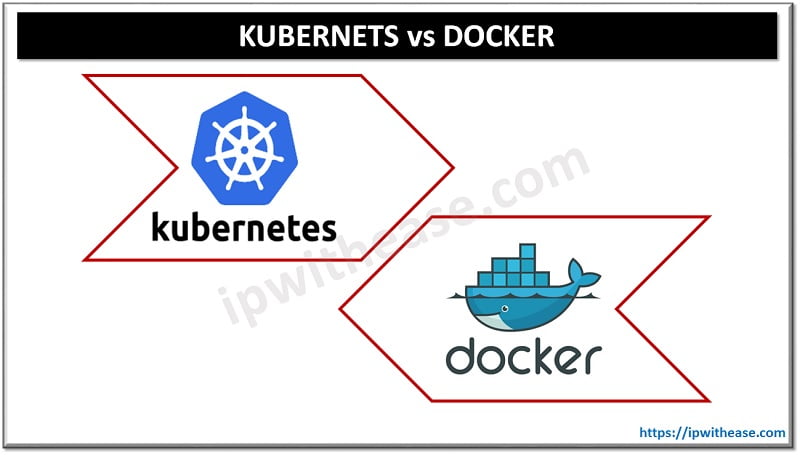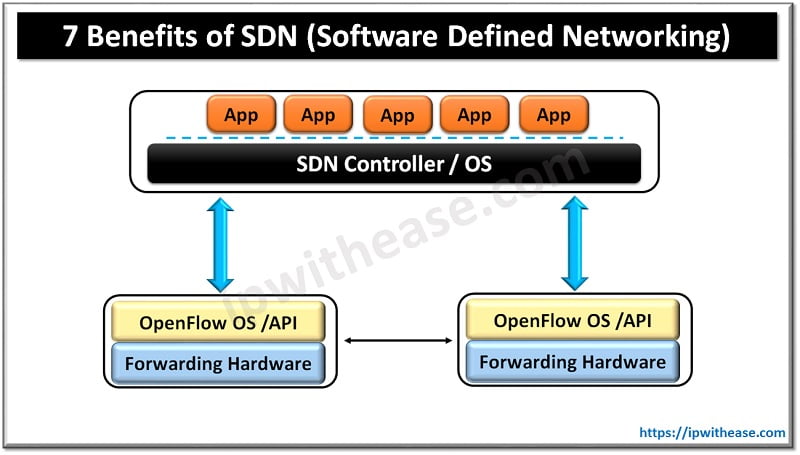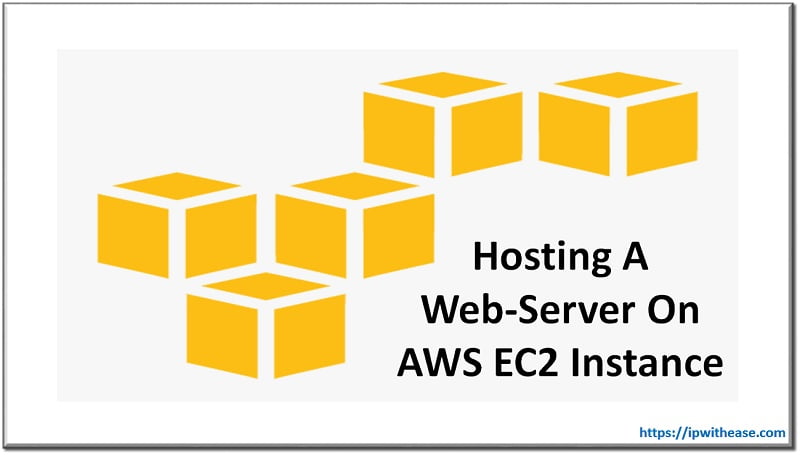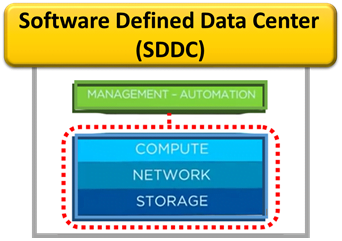Table of Contents
Kubernetes vs Docker
Kubernetes and Docker are 2 terms both related to containerization, and widely used in ever dynamic world of Applications, especially Cloud Computing. Though it is true that Kubernetes can run without Docker and in same way Docker can perform without Kubernetes, however it is also very much true that each of the terms i.e. Kubernetes and Docker greatly benefit from each other.
Let’s discuss Kubernetes and Docker in detail.
What is Docker?
Docker is an open source containerization platform. Docker is a toolkit that makes it easier, safer, and faster for developers to build, deploy, and manage containers (A container is an executable unit of software that packages application code with its dependencies). Docker has gained popularity in the cloud and application. Docker allows automation in the deployment of applications in lightweight and portable containers. Docker is used for Virtualization. Docker also allows to run multiple Operating systems on the same host. Docker is a standalone software that can be installed on any computer to run containerized applications
Features of Docker
- Isolated environments for managing your applications
- Easy Modeling
- Version control
- Placement/Affinity
- Application Agility
- Developer Productivity
- Operational Efficiencies
Advantages of Docker
- Offers an efficient and easier initial set up.
- Integrates and works with other existing Docker tools.
- Allows you to describe your application lifecycle in detail.
- Docker allows the user to track their container versions with ease to examine discrepancies between prior versions.
- Simples configuration, interact with Docker Compose.
- Docker offers a quick-paced environment that boots up a virtual machine and lets an app run in a virtual environment quickly.
- Documentation provides every bit of information.
- Provides simple and fast configuration to boost your business
- Lightweight installation
- Open source
Disadvantages of Docker
- Doesn’t provide a storage option
- Has poor monitoring option.
- No automatic rescheduling of inactive Nodes
- Complicated automatic horizontal scaling set up
- All the actions have to be performed in CLI.
- Poor basic infrastructure handling
- Manual handling multiple instances
- Need support for other tools for production aspects – monitoring, healing, scaling
- Complicated manual cluster deployment
- No support of health-checks
- Limited in functionality by what is available in the Docker API
- Limited fault tolerance
- Provides limited functionality.
- Has limited high availability and fault recovery capabilities.
- Has a far smaller open source community compared to Kubernetes.
- Docker Swarm primarily offers manual scalability, and offers limited ability to automatically provision resources.
Related – DOCKER vs VIRTUAL MACHINE
What is Kubernetes?
Kubernetes is an open source container orchestration platform for scheduling and automating the deployment, management and scaling of applications. Group of containers make up a cluster. Kubernetes cluster includes a container designated as a master node that schedules workloads for the rest of the containers or nodes in the cluster.
Features of Kubernetes
- Offers automated scheduling
- Self-Healing capabilities
- Automated rollouts & rollback
- Horizontal Scaling & Load Balancing
- Provides a higher density of resource utilization
- Offers enterprise-ready features
- Application-centric management
- Auto-scalable infrastructure
- Provides declarative configuration
- Deploy and update software at scale
- Offers environment consistency for development, testing, and production
Advantages of Kubernetes
- Easy organization of service with pods.
- It is developed by Google, who bring years of valuable industry experience to the table.
- Largest community among container orchestration tools.
- Offers a variety of storage options, including on-premises SANs and public clouds.
- Adheres to the principals of immutable infrastructure.
- Open source and modular.
- Runs well on any operating systems.
Disadvantages of Kubernetes
- Migrating to stateless requires considerable effort.
- Limited functionality according to the availability in the Docker API.
- Highly complex Installation/configuration process.
- Not compatible existing Docker CLI and Compose tools.
- Complicated manual cluster deployment and automatic horizontal scaling set up.
- Laborious to install and configure.
- Incompatible with existing Docker CLI and Compose tools.
- Kubernetes deployment can be extremely complex, with a steep learning curve, though Kubernetes as a service (KaaS) platforms can help with this complexity.
- Requires separate administration tools.
Difference between Kubernetes and Docker
- Docker was developed by Docker Inc. and released in 2013 , whereas Kubernetes developed by Google and released in 2014.
- Docker is easy to install, whereas Kubernetes is very complicated and time consuming.
- Docker shares data between multiple containers in the same Pod, whereas Kubernetes Shares data with any other container.
- Docker support logging and monitoring 3rd party tools like ELK , whereas Kubernetes uses in-built tool for logging and monitoring.
- Docker does auto load-balancing, whereas Kubernetes does manually load balancing.
- Docker agent update can be performed in place, whereas Kubernetes cluster can be upgraded in place.
- Docker can be optimized for a single large cluster, whereas Kubernetes is optimized for multiple smaller clusters of SDLC.
- Docker has high fault tolerance , whereas Kubernetes provides low fault tolerance.
- Docker can support 2000 > nodes and 95000 containers, whereas Kubernetes Supports up to 5000 nodes and 300000 containers.
- Docker can support Azure only (public cloud service provider), whereas Kubernetes supports all the key public Cloud providers i.e. Google, Azure, and AWS.
- Docker applications can be used only as micro services in a swarm cluster, whereas Kubernetes applications can be deployed in Kubernetes using a myriad of micro services, deployments, and pods.
- Docker can deploy containers much faster than Kubernetes.
Related – Docker Interview Questions
Comparison Table: Kubernetes vs Docker
| PARAMETER | DOCKER | KUBERNETES |
|---|---|---|
| Developed by | Docker Inc | Google |
| Year of release | 2013 | 2014 |
| Scaling | No Auto scaling | Auto scaling |
| Cluster Setup | Setting up the cluster is challenging & complicated. Cluster Strength is stronger. | Setting up the cluster is simple. Requires only two commands. Cluster Strength is not as strong. |
| Installation | Easy & fast | Complicated & time-consuming. |
| Data volume | Shares storage volumes between multiple containers in the same Pod. | Shares storage volumes with any other container. |
| Support for logging and monitoring tool | Allows you to use a 3rd party tool like ELK. | It offers an in-built tool for logging and monitoring. |
| Load balancing | Does auto load-balancing | Manually configure your load balancing settings |
| Updates | Agent update can be performed in place. | A cluster can be upgraded in place. |
| Optimized For | Optimized for a single large cluster | Optimized for multiple smaller clusters of SDLC |
| Tolerance ratio | High fault tolerance | Low fault tolerance |
| Node Support | Supports 2000 > nodes | Supports up to 5000 nodes |
| Container Limit | Limited to 95000 container | Limited to 300000 containers |
| Public cloud service provider | Azure only | Google, Azure, and AWS. |
| Slave | Worker | Nodes |
| Compatibility | Less extensive and customizable | More comprehensive and highly customizable. |
| Community | An active user base which regularly updates the software. | Offers strong support from open source communities and big companies like Google, Amazon, Microsoft, and IBM. |
| Large clusters | Speed is considered for the strong cluster states. | Offers container deployment and scaling, even in large clusters without considering the speed. |
| Companies using | Spotify, Pinterest, eBay, Twitter, etc. | 9GAG, Intuit, Buffer, Evernote, etc. |
| Github starts | 53.8 k | 54.1 k |
| Github forks | 15.5 k | 18.7 k |
| Application Deployment | Applications can be used only as micro services in a swarm cluster. Multi containers are identified by utilizing YAML files. With the help of Docker Compose, the application can also be installed. | Applications can be deployed in Kubernetes using a myriad of micro services, deployments, and pods. |
| Scalability | Docker Swarm can deploy containers much faster. | Container scaling and deployment are therefore slowed down. |
| Container Setup | The Docker Swarm API offers much of the familiar functionality from Docker, supporting most of the tools that run with Docker. However, Swarm cannot be utilized if the Docker API is deficient in a particular operation. | By utilizing its own YAML, API, and client definitions, Kubernetes differs from other standard Docker equivalents. Thus, Docker Compose or Docker CLI cannot be used to define containers. Also, YAML definitions and commands must be rewritten when switching platforms. |
| Networking | When a node joins a swarm cluster, it creates an overlay network for services for each host in the Docker swarm. This gives users a choice while encrypting the container data traffic to create its own overlay network. | In Kubernetes, allowing all the pods to communicate with each other. Network policies are in place to define how the pods interact with one another. The network is implemented typically as an overlay, requiring two CIDRS for the services and the pods. |
| Availability | Docker also offers high availability architecture since all the services can be cloned in Swarm nodes. The Swarm manager Nodes manage the worker’s node resources and the whole cluster. | Kubernetes offers significantly high availability as it distributes all the pods among the nodes. This is achieved by absorbing the failure of an application. Unhealthy pods are detected by load balancing services, which subsequently deactivate them. |
| GUI | Docker Swarm, alternatively, requires a third-party tool such as Portainer.io to manage the UI conveniently. | Kubernetes has detailed dashboards to allow even non-technical users to control the clusters effectively. |

Download the Comparison Table here.
Conclusion
Docker is an open source containerization platform. Docker is a toolkit that makes it easier, safer, and faster for developers to build, deploy, and manage containers. Kubernetes is an open source container orchestration platform for scheduling and automating the deployment, management and scaling of applications. Docker is popular among developers who prefer fast deployments and simplicity. Kubernetes is utilized in production environments.
ABOUT THE AUTHOR

You can learn more about her on her linkedin profile – Rashmi Bhardwaj




